Animal testing feels so out-dated and cruel that many people are surprised to learn that majority of the big name products on our supermarket shelves and in our department stores are STILL being tested on animals.
However, as the consumer demand for cruelty free products continues to rise so does the range of cruelty free products available for purchase. Every day new brands are hitting our shelves with cleaner, kinder and more sustainable options, creating a little healthy competition for the dominant big player brands, causing them to rethink their product and up their game.
The rise in consumer demand has forced global beauty giant Unilever to choose between stopping animal testing or losing customers. Unilever owns many of the best-known cosmetics and household brands — such as Dove, Rexona, Sunsilk and Vaseline — late in 2018 they announced its support for a global ban on animal testing for cosmetics! They are working with PETA and non-profit animal welfare groups to get the PETA certified cruelty free logo on all their products. They will be starting with the Dove range and then over time move onto their other lines.
With big names like this speaking out, a global end to animal testing for cosmetics may be closer than we think.
Europe, New Zealand and India have already banned animal testing on beauty products and Australia is currently in review with a hope to have the ban in place by 2020.
However, like anything there are loopholes and often companies that you think are not testing on animals actually are. Some great examples of this include:
- The raw ingredients that they use in their products have been tested by the supplier they purchase from
- They pay third party companies to do animal tests on their products – therefore because the company itself isn’t doing the animal testing they get clever with wordplay saying “they don’t test on animals”
- If a company sells to a retail bricks and mortar shop in China - then they support animal testing. By law, all products sold on shop shelves in China are required to be tested on animals. Whilst the company doesn't directly test on the animals, the Chinese authorities do. Many companies are standing up for the animals by pulling their products off the shelves in China. Unfortunately, this is where the PETA cruelty free symbol can get a little muddy - but don't worry there are other cruelty free logos to look for and ways to determine if a company truly is cruelty free.
Want to delve deeper into learning about the ins and outs of this cruel practice? Read my article here.
So now that we know animal testing is a mainstream practice in most beauty products, the good news is that finding out which products and brands are cruelty-free is super easy. And best of all? The cruelty-free list gets bigger and bigger every year as customers and companies embrace an animal-friendly way of life!
Animal testing alternatives
There are many ways to find out whether a product is safe to use without having to be cruel to animals, such as:
- in-vitro techniques involving donated human tissue or cell cultures
- using donated human corneas from eye banks, or synthetic or reconstructed human skin
- using human volunteers
- computer modelling and maths simulation programs, for example to predict a chemical's toxicity or irritancy and its likely interaction with other compounds, based on what's known already about substances with a similar structure.
How to shop cruelty free
I have spent a lot of time compiling information to help make your transition to cruelty free beauty as simple and easy as possible.
Knowledge is power- do your research: Knowledge is key when it comes to shopping cruelty-free. First educate yourself on the animal testing policies of your favourite brands. A quick google search along the lines of "Does X test on animals" will do, or alternatively you could check out the company's website for their policy on animal testing. Also a great starting point [however, I wouldn't rely on it 100%] is to search PETA's data base on companies that still test on animals.
Look for the proof: It's simply not enough for companies to say they are against animal testing, make them back-up their claims with certification. When it comes to small and artisan brands, if they don't have the certification it could be because they don't yet meet the strict requirements or its to costly for them. A truly transparent company will give you the details of where they get their ingredients from. For example, here at Botanical Trader the company we buy all our ingredients off is certified both organic and has the choose cruelty free bunny [which in my opinion is the best certification out of them all in regards to the high standards that companies need to meet].
If your favourite artisan brand isn't certified then write to them and ask them a few questions. If they are the real deal they will be more than happy to answer your questions in depth.
With the certification not all the bunnies are created equal. I have written an easy to follow guide on the logos and what each of them actually mean. Get yourself educated and take a look at A Complete Guide To Choosing Vegan + Cruelty Free
Get yourself organised: I suggest by keeping yourself organised and up-to-date will support your journey in a cruelty-free lifestyle. Get involved in cruelty free online groups. Dedicate a few hours each week to read up and stay informed on the current issues. And to make decisions easy for you download yourself an app for your phone, so that you have the information readily available at your fingertips. My four favourite choices are:
- The CCF App by Choose Cruelty Free: A free app that keeps you in the loop on which companies are certified with the CCF accreditation [which in my opinion is the best]. To get a copy of the app click here.
- Choose Cruelty Free by Leaping Bunny : It’s free and allows you to instantly scan the product’s barcode which recognises if the brand is certified. However, it doesn’t allow you to filter brands that offer vegan.The Cruelty-Free app is very straight-forward to use and it’s available for FREE on both Androids and iPhones.
- Bunny Free by PETA: This app has three searchable, handy, features, 1) type the company’s name into the search box, 2) scan the product, 3) browse their a-z list. It supplies you with the contact details of the companies – which is an added bonus. Unlike Cruelty Free by Leaping Bunny, it tells you which organisations are not cruelty-free, so that you can avoid them easily. You are also able to filter in a vegan option. The app is FREE and is available for both Androids and iPhones. Bunny Free uses data from PETA’s cruelty-free shopping guide.
- Cruelty – Cutter by the Beagle Freedom Project: This app combines all of the features of the previous apps and a few more; it will produce a cruelty-free directory list by category like nail care, dish detergent, self-tanners, and more. IT provides company information like direct link to their website, Facebook, and Twitter accounts and keeps a log of your ‘History’ of all the products you’ve scanned. You can then add that product to your list of ‘Favourites’. Once you’ve done that, you have the ability to share your results with friends on social media! Get people talking. Cruelty-Cutter is available to download for a donation of $2.99 to the Beagle Freedom Project and available for iPhone and Android users.
Don't forget the essentials: One of the things that commonly happens when switching over to cruelty free is that we forget about the everyday essentials such as deodorants, toothpaste, household cleaners. These items make up the majority of our consumer spend, therefore they have the capacity to create the greatest positive impact in the fight against animal testing. Many deodorants, dental floss and mouthwash's are tested on animals, particularly supermarket and drugstore brands. So it may mean putting a little extra effort into your shopping to make these things in your life cruelty-free. A little extra effort on your part contributes to a louder voice, speaking up for these animals suffering is the only way we will stop this unethical testing. I have an immediate solution to your deodorant - why not make your own? Its cheap, easy and actually really works. Get my recipe here.
Choose to live a more compassionate life: Everyday you have the opportunity to change the world by what you buy and what you choose to talk about with family and friends. The animals need our voice and action more than ever, read my complete guide on how to make more compassionate choices for our animal friends
Finally, have fun with it: The best part about going cruelty-free is discovering new brands and products that operate with good ethics. A majority of the cruelty-free beauty products and personal care items are often handmade by small, locally run businesses, so by supporting these small artisan companies you are also supporting a community of hardworking and compassionate people. And the best part about buying cruelty free products is that you feel good, knowing that your consumer dollars are voting for a kinder future for animals. So have fun and explore the world of cruelty-free beauty!
You have the power to spare animals from cruel tests
Consider that every dollar you spend is a vote for a kinder world. Next time you purchase makeup or cleaning products, choose to ALWAYS vote for kindness?
- Pledge to use non-animal tested products!
- When you choose to no longer buy a product/brand because they support animal testing, please take the time to contact their customer feedback team to let them know why you won't buy into animal cruelty. In the past, his feedback has proven to be extremely beneficial for creating positive change in company policy.
- Use your voice to speak up about the issues. At an individual level, it’s important that you advocate animal rights and educate those around you. We all have a circle of influence, use yours to help raise awareness for this barbaric practice. It truly is a privilege to have freedom of speech, rise strong, and use your voice to speak up for those that can’t.


